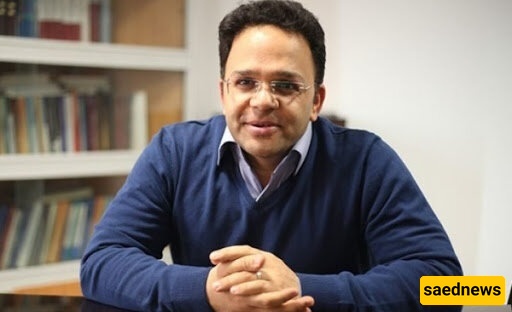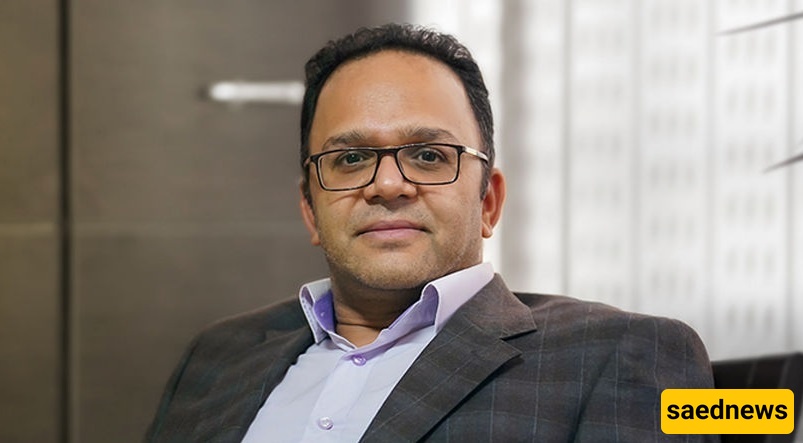SAEDNEWS: In the wake of U.S. airstrikes on Iranian nuclear sites and a damning IAEA report, Tehran says diplomacy is being derailed and it won’t offer “excessive concessions” under fire, casting a shadow over nuclear negotiations and regional stability.

According to Saed News, tensions between Iran and the West have entered a volatile new phase after U.S. forces struck three key Iranian nuclear sites—Fordow, Natanz, and Isfahan—aligning Washington openly with Israel’s military campaign. Iranian political analyst Rahman Ghahremanpour warns that a recent report by Rafael Grossi, Director General of the International Atomic Energy Agency (IAEA), has effectively knocked nuclear negotiations off their tracks.

In an interview with Iranian media, Ghahremanpour criticized Grossi’s statement—which asserted that Iran’s nuclear program retained military dimensions beyond 2003—as a pivotal moment that encouraged Western hawks and destabilized diplomatic prospects. “This report, contrary to its perceived technical neutrality, gave political ammunition to those pushing for escalation,” he said.
Meanwhile, Iranian Foreign Minister Araghchi issued a stern statement following the attacks, invoking the UN Charter’s provision for self-defense and affirming that “all options are on the table” to protect Iran’s sovereignty and citizens. The Atomic Energy Organization of Iran echoed the sentiment, condemning the strikes as “savage” and in violation of international norms and the Non-Proliferation Treaty (NPT).
In immediate retaliation, the Islamic Revolutionary Guard Corps launched the 20th and 21st waves of coordinated drone and missile attacks on military-industrial targets in Haifa and Tel Aviv, escalating what many now describe as a regional war.
Ghahremanpour underscored that Iran rejects the West’s insistence on returning to a negotiation table that it claims has been “blown to pieces.” “Iran does not see itself in a position to offer disproportionate concessions,” he stated, describing the West’s approach as one predicated on Tehran’s submission.
According to Ghahremanpour, President Trump—now in his second term—is caught between pro-Israel war hawks and domestic isolationists. Though under intense pressure to escalate, Trump has so far opted for limited strikes, attempting to project resolve without triggering a full-scale war. “It’s an uneasy balance—signaling force while avoiding a quagmire,” the analyst noted.
Strategically, both Europe and the U.S. appear aligned on curbing Iranian, Russian, and Chinese influence. But tactically, significant rifts remain—particularly in how each side interprets Iran’s role and in managing fallout from the Israeli offensive. European leaders, especially President Macron, have grown wary of regional destabilization triggering refugee flows into the continent, which could fuel the rise of right-wing populism.
Yet, the diplomatic front remains bleak. The West’s framing of negotiations presupposes Iranian vulnerability following airstrikes, whereas Tehran demands mutual respect and equilibrium as prerequisites for genuine dialogue. “This is no longer a negotiation; it’s coercion under fire,” Ghahremanpour warned.
He also raised the specter of Iran reconsidering its relationship with the IAEA and potentially withdrawing from the NPT if the crisis deepens. “The rules of the game have changed. Trust in international mechanisms is eroding rapidly,” he said.
While some in Tehran argue that strategic diplomacy could still yield an opening—exploiting tactical divides between the U.S. and Europe—Ghahremanpour is cautious. “Let’s not overstate our optimism. These are wartime dynamics. The only viable path forward is sustained, unrelenting diplomatic engagement,” he concluded.
Iran’s media narrative now intertwines military defiance with a plea for global recognition as a victim of aggression—though its voice remains largely unheard in Western outlets. Whether the world listens, or whether this silence becomes another signal of strategic isolation, may determine the next chapter in this intensifying conflict.

